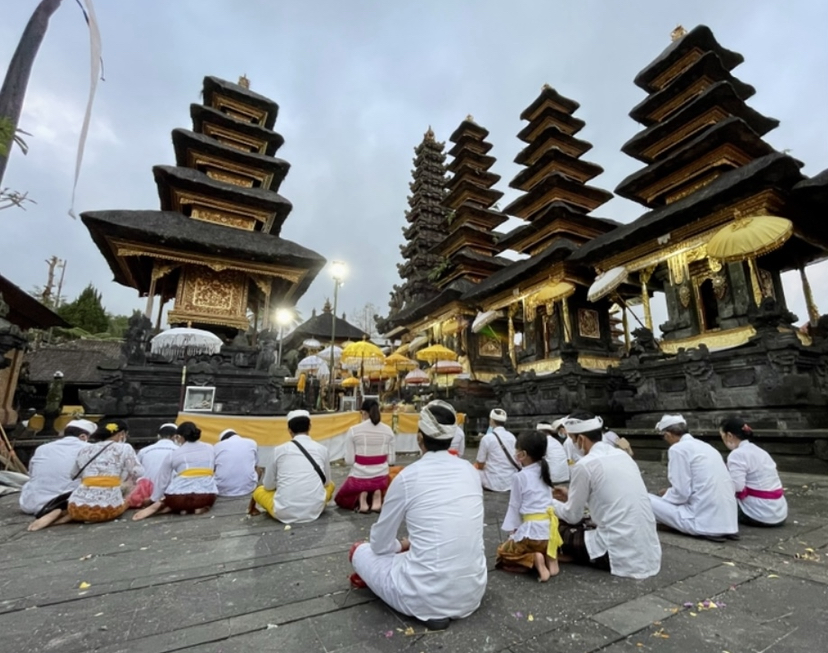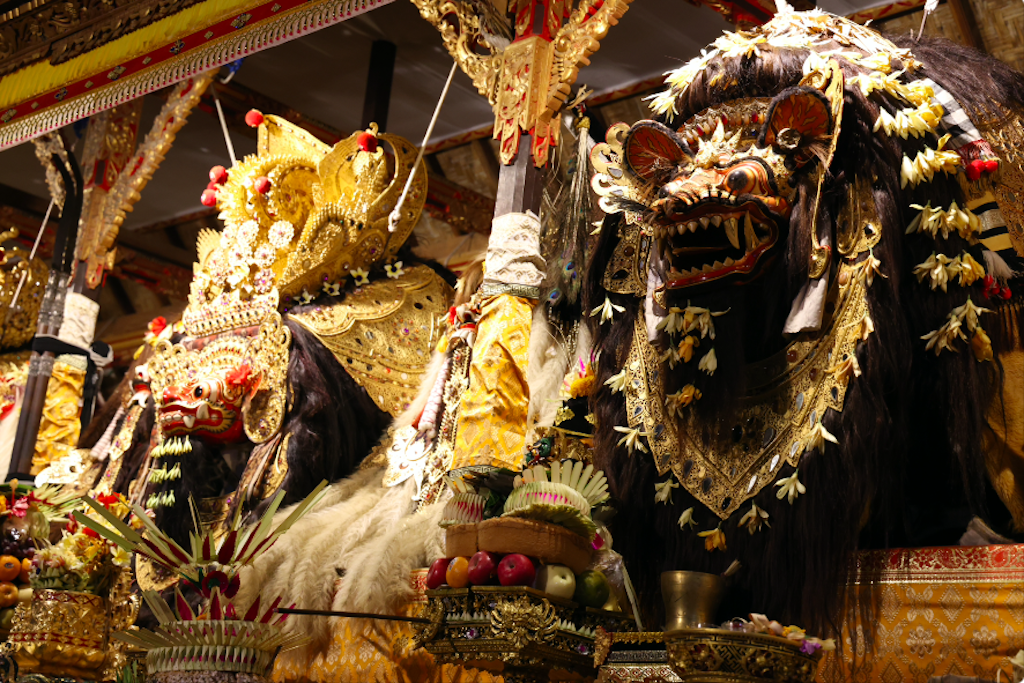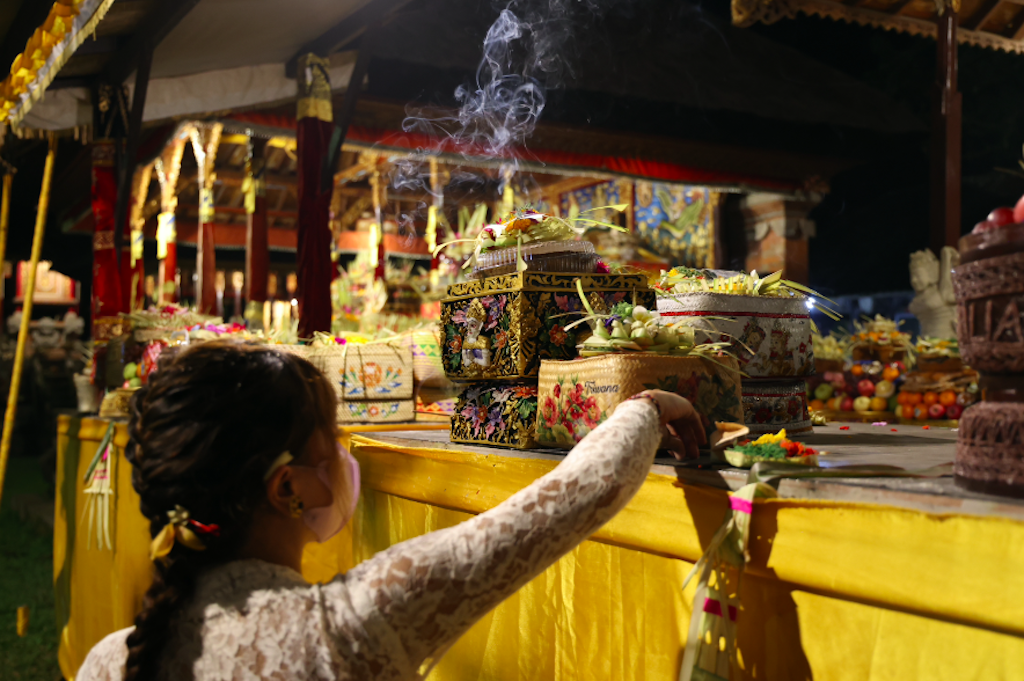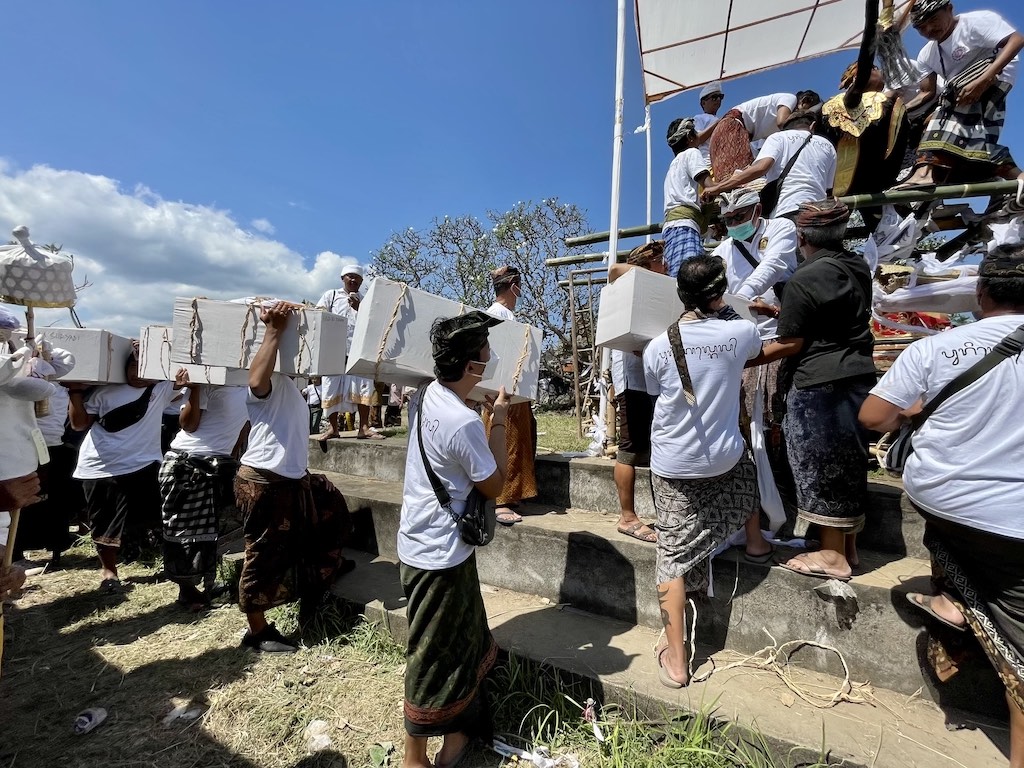Ceremonies in Bali Island. The natural beauty of Bali is truly mesmerizing, with stunning views ranging from mountains to beaches and lakes.
What makes Bali even more special is its rich cultural heritage, which is deeply woven into the daily lives of its people. A visit to Bali becomes even more memorable when you have the chance to experience its vibrant traditional ceremonies. Tourists often have the opportunity to witness and document these unique cultural events.
Here are seven traditional ceremonies on the island of Bali, each with its own uniqueness:
Melasti Ceremony
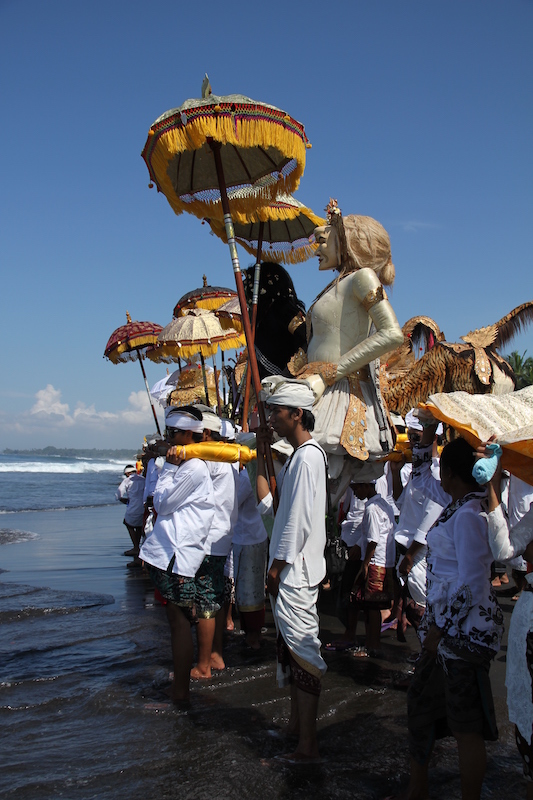
The Melasti ceremony is a purification ritual for both individuals and sacred objects associated with temples. In Hinduism, water sources like lakes, seas, and springs are seen as sources of life, or “tirta amerta.” During this event, people dress in white and gather at the sea or other water sources, carrying sacred objects or statues (pratima) to be ritually cleansed.
The ceremony aims to deepen devotion to the Gods and their manifestations while raising awareness about environmental preservation among Hindus. If you want to experience this traditional ceremony, it’s best to arrive three or four days before Nyepi and stay at hotels near major Hindu temples, such as those in Kuta or Uluwatu.
Ngerupuk Ceremony
The Ngerupuk ceremony takes place on the day before Nyepi. During this ritual, the community prays and makes offerings to Bhuta Kala to drive it away and prevent it from disrupting human life during the period of silent meditation known as Brata Penyepian.
The ceremony begins with lighting torches, spraying houses and yards with gunpowder, and creating loud noises by banging objects. After this traditional ceremony, a parade featuring ogoh-ogoh (large, demon-like effigies) usually follows. Participants carry torches and parade through residential areas to complete the celebration.
Saraswati Day
Saraswati Day is a holiday dedicated to celebrating knowledge. On this day, Balinese Hindus hold a special ceremony to worship and honor Dewi Saraswati, the goddess believed to have brought knowledge to the world, making everyone wise and educated.
The Saraswati ceremony includes prayers for all things related to learning, such as books and scriptures. The celebration often features dance performances and storytelling sessions that continue throughout the night.
Galungan Day
Galungan, which comes from Old Javanese and means “victory,” is a traditional Balinese ceremony celebrating the triumph of good over evil. It also commemorates the creation of the universe and everything within it.
The Galungan festivities last for about 25 days leading up to the main day, which occurs every 210 days according to the Balinese calendar. During this time, Balinese Hindus joyfully celebrate Galungan Day.
Tumpek Landep Ceremony
The Tumpek Landep ceremony is a respected tradition in the Balinese community, where weapons and tools are purified through offerings and prayers. This sacred ritual, guided by esteemed traditional leaders, is held at a designated temple. The main goal is to bless the community’s weapons and equipment, ensuring they bring good fortune to their owners.
Mepandes Ceremony
Also known as Metatah or Mesuguh, the traditional Mepandes ceremony is performed when a child reaches adolescence. During this ritual, the six upper canine teeth of the child are filed down. The purpose of this tooth-filing ceremony is to remove negative traits such as greed, jealousy, and anger.
Ngaben Ceremony
The Ngaben ceremony is a cremation ritual in Bali, seen by the Balinese Hindu community as a way to return the body to the Creator. There are three types of Ngaben ceremonies: Ngaben Sawa Wedana, Ngaben Asti Wedana, and Private.
The Ngaben Sawa Wedana ceremony is performed after the body has been preserved, just before the cremation ritual. Ngaben Asti Wedana is conducted after the body has been buried. A Private Ngaben ceremony is held for Balinese residents who have passed away outside the local area or whose bodies have not been recovered.
Due to the high cost of the Ngaben ceremony, not all Balinese people can afford it for their deceased family members. To address this, both the traditional village government and the provincial government organize mass cremation ceremonies for underprivileged families. These ceremonies allow the bodies of their ancestors to be cleansed and purified according to Hindu religious teachings. As a result, the Ngaben ceremony is not always performed individually and may vary based on circumstances.
Goa Gajah, Yeh Pulu, Tirta Empul, Gunung Kawi Tampaksiring, Gunung Kawi Sebatu, Pura Mengening, Goa Garba, Candi Tebing Tegallinggah.
